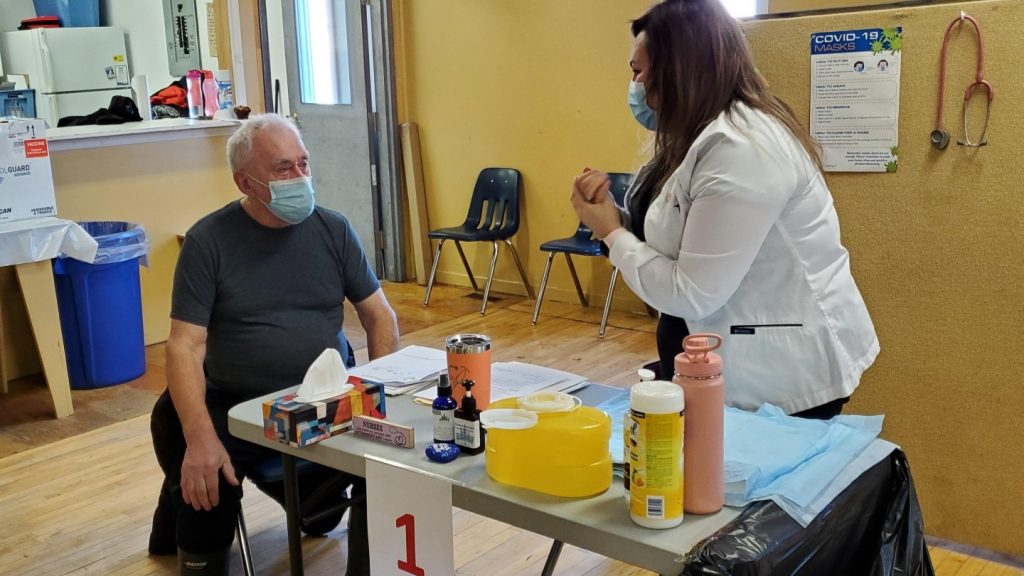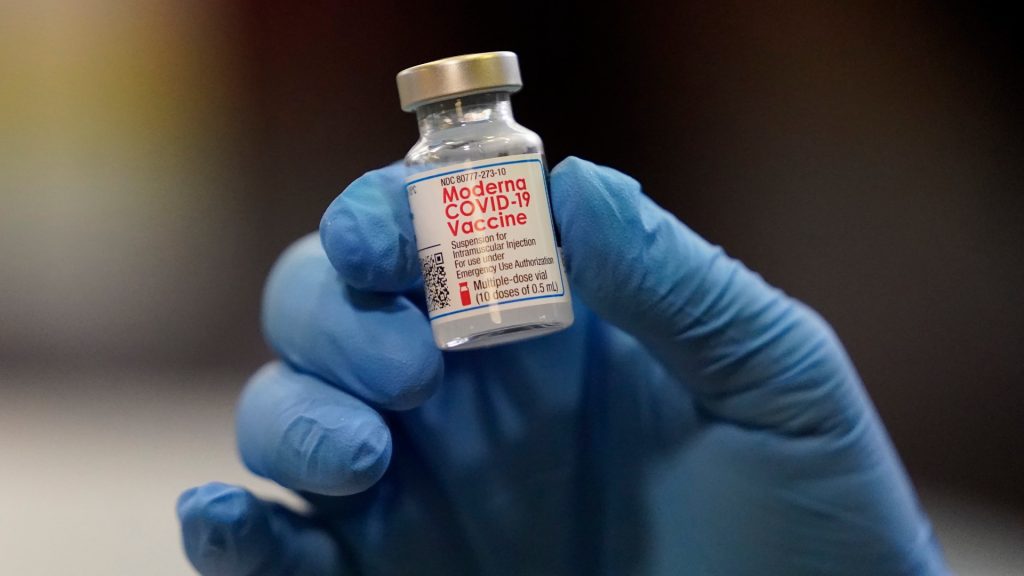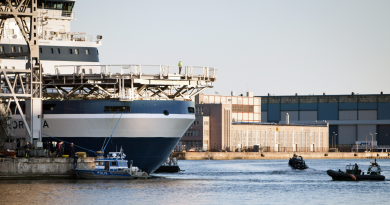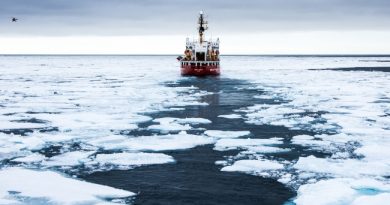Elder in Makkovik first to get COVID-19 vaccine in Inuit region of Atlantic Canada

Vaccination against COVID-19 in Nunatsiavut, the Inuit region of the Atlantic Canadian province of Newfoundland and Labrador, began on Monday with the first doses distributed in the community of Makkovik.
“Today is another exciting day on the COVID-19 front for our province,” said Newfoundland and Labrador Premier Andrew Furey at a streamed news conference on Monday.
“The first COVID-19 vaccinations are being administered in Labrador… Elder Willie Ford was the first resident of Nunatsiavut, in Makkovik, to receive the vaccine, and more and more will continue.”
The Labrador Inuit region has received does of the Moderna COVID-19 vaccine which requires storage of between -25 C to -15 C and will be shipped to each of the region’s five Inuit communities using specialized containers.
Nunatsiavut’s population of 2560 is spread out along the Atlantic coast in five communities: Nain, Hopedale, Makkovik, Postville and Rigolet.

Priority will be given to health-care workers and seniors as per federal and provincial directives, and then will be available to any residents 18 years of age or older, the Nunatsiavut Government said in a news release on Friday.
Those under age 18, people with allergies, or women who are pregnant or breastfeeding will not be eligible for the vaccine.
The vaccine is not mandatory but the Nunatsiavut Government says it’s urging anyone eligible to get vaccinated.

- January 11 – Makkovik
- January 12 – Rigolet
- January 13 – Postville and Hopedale
- January 14 – Hopedale
- January 15-16 – Nain
Nunatsiavut’s Health and Social Development Minister Gerald Asivak said the vaccine’s arrival in the region is positive news but that people will still need to follow public health directives.
“Although there is a light at the end of the dark tunnel, we still have a way to go before the threat of COVID-19 passes,” Asivak said in a December 30 news release.
“Even if you get the vaccine, you should continue to follow all public health protocols, including practicing good hand hygiene, wearing a mask and maintaining social distancing of at least two metres from those outside your immediate households.”
Write to Eilís Quinn at eilis.quinn(at)cbc.ca
Related stories around the North:
Canada: Why vaccinating communities in Arctic Quebec presents a delicate challenge, CBC News
Denmark: Faroe Islands institutes new COVID-19 recommendations until the end of 2020, Eye on the Arctic
Iceland: Iceland to review COVID-19 border measures by January 15, Eye on the Arctic
Russia: Russia’s Northern Fleet begins 2nd stage of COVID-19 vaccination, Radio Canada International
Sweden: Sweden’s northernmost county among regions to introduce stricter COVID-19 recommendations, Radio Sweden
United States: After early containment success, there’s now rapid COVID-19 spread in rural Alaska, including the Arctic, Alaska Public Media



